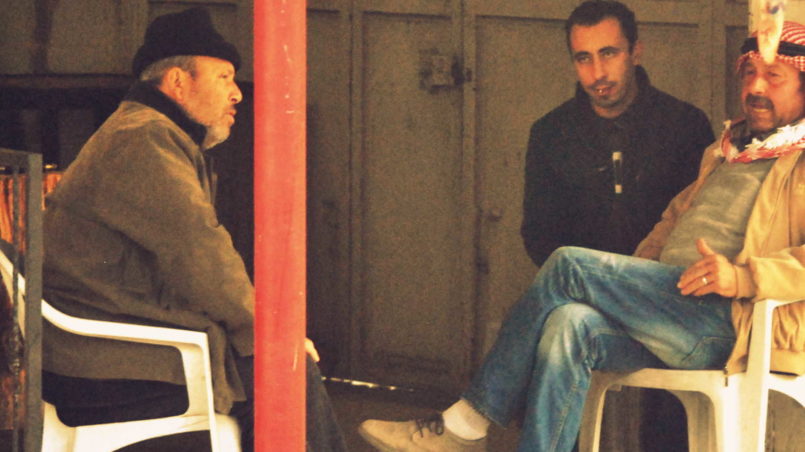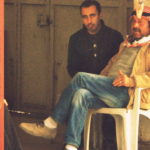Construction of Palestinian Masculinity

The day I reached the Middle East, I could easily discern the patriarchal nature of their society. Nothing was implicit but patriarchal beliefs were explicitly put into practice.
Patriarchy is a universal phenomenon. However, the Middle East can be considered as one of the seats of patriarchy. And the manifestation of such deeply entrenched patriarchy in the region is the notion of honor and shame.
But the concept of honor is not exclusively limited to the management of sexuality. It is also intricately linked with valor, strength, dignity, and many similar ideas.
My visit to Palestine provided me with an opportunity to observe and analyze the different ways in which gender roles are performed and perpetuated. I have always had a keen interest in gender issues in the Middle East. Gender research in the Middle East understandably focuses exclusively on women with the belief that it would accelerate their emancipation.
As a result, issues regarding masculinity are rarely discussed and thus men as gendered subjects remained an under-examined category. However, I believe it is equally important to focus on men as gendered categories in order to have a deeper understanding of the workings of patriarchy in any society.
I got the opportunity to visit Palestine. I used the opportunity to interact with as many Palestinian men as possible, to understand the way they perceive themselves as gendered subjects. It was interesting to find out how they perceive the idea of masculinity and the concomitant requirements to achieve a respectable masculinity.
Amongst Palestinians, honor is very important. In fact, it constitutes the basis of gender identity amongst Palestinian men. In Palestinian society, honor is not only related with family and sexuality but is also linked to the national struggle.
Active engagement in the nationalist struggle and the ability to resist are considered important criteria to achieve masculinity amongst Palestinians. Every Palestinian man is expected to be politically active and engage in resistance activities. I was amazed to hear that Palestinian men who are apolitical and reluctant to participate in the resistance activities are considered to be lacking masculinity.
The Israeli army use public beatings as a strategy to emasculate Palestinian men and strip them of their self-respect and dignity. I realized that Palestinians have inverted the meaning and significance of such strategies of humiliation by the Israeli army. Palestinians have started to frame the beatings and detention as integral for the construction of masculinity. This understanding is evident from the way Palestinian men display bodily marks of violence by the Israeli army as marks of masculinity.
Amongst the Palestinian participants of our youth camp, there was a man who had spent six years in an Israeli detention center. I observed that he was highly regarded as a respectable man by all the Palestinians in the camp. He was usually asked to narrate his experiences in the detention center. Moreover, I was told by one of my Palestinian friends that to be acknowledged as a leader amongst Palestinians, one needs to have a history of confrontation with the Israeli army, and should have bodily inscriptions of beatings, gunshots as well as experience of torture in Israeli prisons.
Palestine is regarded as ard al-shuhuda, i.e., “the land of martyrs”. The term shahid or martyr has strong Islamic content and means “one who has died in the path of God or in a holy war”. However, in the Palestinian context it usually denotes one who has died for the homeland.
I would like to briefly elucidate on the concept of hegemonic masculinity. Hegemonic masculinity embodies not only the most dominant way of being a man but also the most honored way of being a man. But hegemonic masculinity occupies positions of domination not through violence or force but by production of exemplars. In the Palestinian context, martyrdom is such an exemplar.
In Palestinian society, martyrs are considered as heroes. Such a masculinity which is characterized by an exceptional ability to endure pain and sacrifice life for the national cause is considered most appropriate and thus venerated. However, I realized that hegemonic masculinity is normative in nature and hardly corresponds to the lives of every Palestinian man.
Palestinian society is patriarchal in nature as are other Arab societies. Such societies encourage men to develop an appropriate masculinity which is socially acceptable. Traditionally in Arab societies, masculinity used to be measured on a man’s ability to provide for, protect and expand his family. Thus I was of the opinion that in Palestinian society, an appropriate masculinity which is socially recommended would be built around enduring commitments to the family.
The female participants of the youth camp were provided accommodation in the Palestinian Police Academy. And thus I got the opportunity to interact with men who made me understand the relevance of nationalist masculinity in the context of the Palestinian national struggle.
Credits
| Image | Title | Author | License |
|---|---|---|---|
 |
Construction of Palestinian Masculinity | Sumana Singha | CC BY-SA 4.0 |
